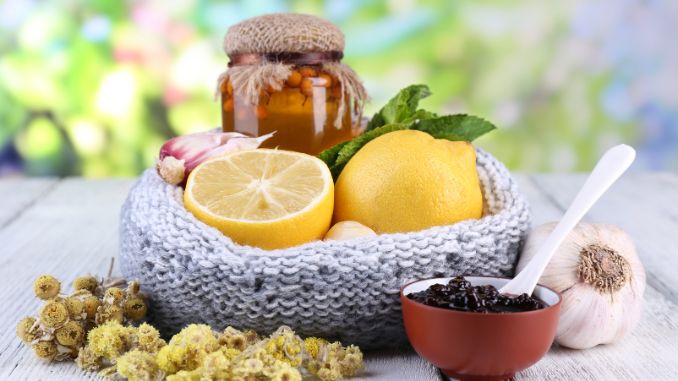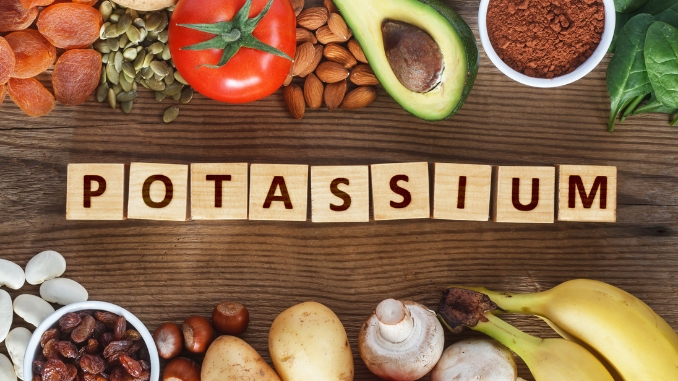It's allergy season! Tired of the allergy shuffle? Well, buckle up because relief is no longer a waiting game! Explore our guide on How To Stop Allergies Immediately for swift solutions to end sneezing fits and itchy eyes. Say goodbye to allergy blues with our fast and effective tips!
Discover at-home remedies, alternative treatments, and easy tweaks that bring the joy back to your favorite seasons.
Kick allergy season to the curb and embrace the swift comfort. This is your shortcut to a sneeze-free, itch-free utopia
What is Seasonal Allergy?
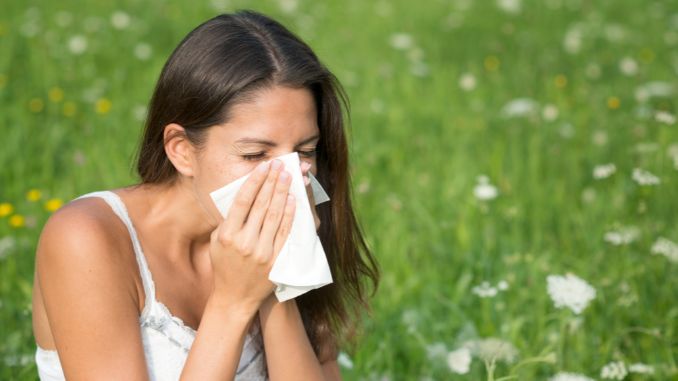
Seasonal allergies, generally referred to as hay fever or allergic rhinitis, are allergic responses triggered by specific environmental factors during particular times of the year.
Allergic rhinitis typically occurs when the body reacts excessively to airborne substances. The prevalence of seasonal allergies is often linked to the release of these allergens into the air, most notably during spring, summer, or fall. While not typically serious, seasonal allergies can cause discomfort, prompting individuals to seek relief through various means, such as medications or lifestyle modifications.
Seasonal Allergy Symptoms
These are the common symptoms of seasonal allergies, but individuals may experience them to varying degrees:
1. Stuffy Nose or Runny Nose
Excessive nasal discharge (runny nose) and stuffy nose, making breathing difficult and causing discomfort.
2. Watery Eyes or Itchy Eyes
Irritation or a prickling sensation in the eyes, accompanied by excessive tearing.
3. Itchy Throat or Itchy Nose
Persistent itching or irritation in the throat or nose, sometimes leading to discomfort or a scratchy feeling.
4. Fatigue
Feeling unusually tired or lethargic, possibly due to the body's immune response to allergens.
5. Coughing
Sometimes, a cough may develop as a secondary response to postnasal drip caused by nasal congestion.
6. Dark Circles Under Eyes
Often referred to as "allergic shiners," these are dark discolorations under the eyes resulting from congestion and swelling of the blood vessels.
If you experience some of these, visit a healthcare professional for allergy testing.
Common Allergens of Seasonal Allergy
Among other allergens, here are the common causes of allergy:
1. Pollen Count
Pollen counts include tree pollen, grass pollen, and weed pollen is a prevalent allergen. Different pollen counts from plants are released at different times of the year. Take extra precautions for pollen counts.
2. Mold Spores
Mold spores, especially those released by outdoor molds, can trigger allergic reactions. These spores are more abundant in warm, humid conditions.
3. Ragweed
Ragweed is a potent allergen; its pollen is a major cause of late summer and fall allergies.
4. Pet Dander
Proteins found in animals' skin cells, urine, and saliva, such as cats and dogs, can trigger allergic reactions in some individuals.
5. Dust Mites
Microscopic insects are indoor allergens found in bedding, carpets, and upholstered furniture. Seasonal allergies to dust mites can result from exposure to their waste particles and shed skin.
Understanding these common causes of seasonal allergies, including pet dander and dust mites, can empower individuals to take proactive measures to fewer allergy symptoms.
Natural Remedies for Instant Allergy Relief
How to stop allergies immediately, using alternative treatments? Explore the diverse range of options with these quick and effective natural remedies you can incorporate into your daily routine to ease allergy symptoms.
1. Local Honey

Explore local honey, a tasty remedy thought to expose your body to trace pollen amounts, potentially providing long-term relief from seasonal allergies.
2. Quercetin-rich Foods

Boost your diet with quercetin-rich foods like apples, berries, and onions—natural antioxidants and anti-inflammatory foods with natural antihistamine properties—to embark on a palate-pleasing journey that may alleviate seasonal allergies and embrace the vibrant benefits of nature's pharmacy.
3. Nettle Leaf
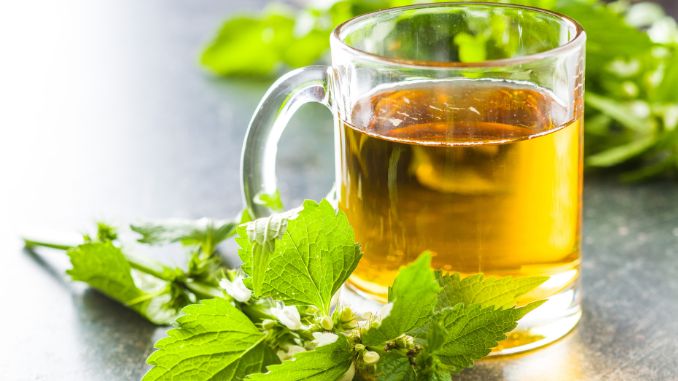
Experience the soothing power of nettle leaf, an herbal ally for allergy relief. Whether sipped as tea or taken as a supplement, it's celebrated for its anti-inflammatory effects, offering a natural balm for respite from seasonal allergies and easy breathing amid the seasons.
4. Butterbur
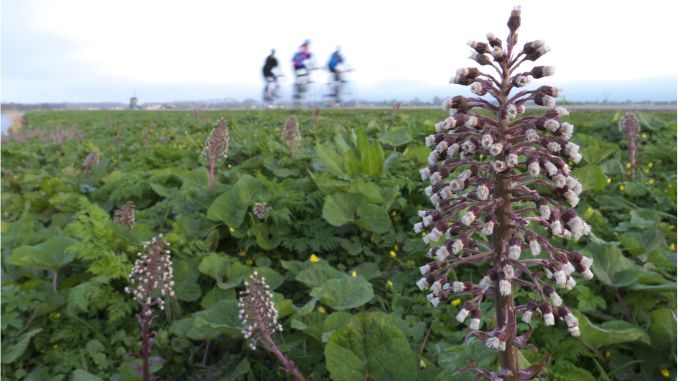
Enter the serene world of butterbur, an herbal solution known to alleviate allergies by reducing sneezing, stuffy nose, or nasal congestion. Embrace this botanical companion for a calmer, more breathable existence, sweeping away the burdens of seasonal discomfort.
5. Saline Nasal Rinse

Try a saline nasal rinse for quick relief. The water with saline solution washes away allergens, eases congestion, and clears nasal passages, allowing you to breathe comfortably.
Experiencing major allergy troubles? Consider allergy meds under expert advice for quick relief on how to stop allergies immediately.
Common Allergy Medications
Looking for relief from allergies? Over-the-counter and prescription meds are game-changers in handling allergies. Let’s explore the popular prescription allergy meds for dealing with seasonal allergies and discovering how to stop allergies immediately.
1. Oral Antihistamines
These drugs counteract the effects of histamine, a chemical freed by the immune system in response to allergens. Common antihistamines include cetirizine (Zyrtec), loratadine (Claritin), and fexofenadine (Allegra). They're easily available over-the-counter or in stronger forms with a prescription, aiding in managing allergies and boosting your immune system against allergen reactions.
2. Decongestants
These medications help relieve congestion by narrowing blood vessels. When taken orally, decongestants provide temporary relief from nasal stuffiness. Pseudoephedrine is a common decongestant found in many over-the-counter and prescription medications.
3. Nasal Corticosteroids
These sprays help reduce inflammation in the nasal passages, relieving congestion and other allergy symptoms. Examples include fluticasone (Flonase), budesonide (Rhinocort), and mometasone (Nasonex). Many are available over-the-counter, while some may require a prescription.
4. Leukotriene Modifiers
These medications, such as montelukast (Singulair), can be prescribed to alleviate allergies by blocking the action of certain immune system substances, like Cromolyn sodium nasal sprays.
5. Allergy Eye Drops
These eye drops, containing antihistamines or mast cell stabilizers, can relieve itchy and watery eyes. Examples include ketotifen (Zaditor) and olopatadine (Patanol).
6. Mast Cell Stabilizers
Cromolyn sodium is a mast cell stabilizer in nasal spray or eye drop form. It helps prevent the release of histamine and can be used to manage allergy symptoms.
7. Immunotherapy (Allergy Shots)
In severe or persistent allergies, allergists may recommend immunotherapy or allergy shots. This involves injecting small amounts of allergens over time to desensitize the immune system.
Practical Tips to Lessen Allergy Triggers
1. Regular Cleaning
Keep your living space clean by dusting, vacuuming, and wiping surfaces regularly to reduce the presence of environmental allergens like dust mites and pet dander.
2. Strategic Ventilation
Enhance your indoor environment by thoughtfully opening windows and doors when outdoor pollen levels are lower, permitting fresh air flow without introducing excessive allergens. This method balances the benefits of natural ventilation and allergy control, making your indoor air invigorating and allergen-managed.
3. Air Purifier / Air Conditioning
Elevate indoor air quality with an air conditioner/air conditioning system or air purifier featuring HEPA filter. It is designed to capture and remove airborne allergens. HEPA filter works in tandem with ventilation, ensuring that the air circulating in your home is cleaner and allergen-free, allowing you to relish the freshness of natural ventilation with enhanced comfort.
4. Timed Ventilation
For an optimal balance between fresh air intake and allergen reduction, consider ventilating your home late evening or early morning when pollen counts are lower. This strategy minimizes the influx of outdoor allergens, making your indoor environment an allergy-friendly, breathable haven.
Conclusion
In the midst of allergy season, we understand the desire for immediate relief from the persistent allergy symptoms that can disrupt our lives. With our guide as your ally on how to stop allergies immediately, you're equipped to navigate this challenging season with grace and ease.
By exploring the remedies and alternative treatments we've presented, you're not just addressing the discomfort of seasonal allergies; you're taking a holistic step toward improving your overall health and well-being. So, bid farewell to the sneeze symphonies, itchy eye dramas, and nasal allergies.

